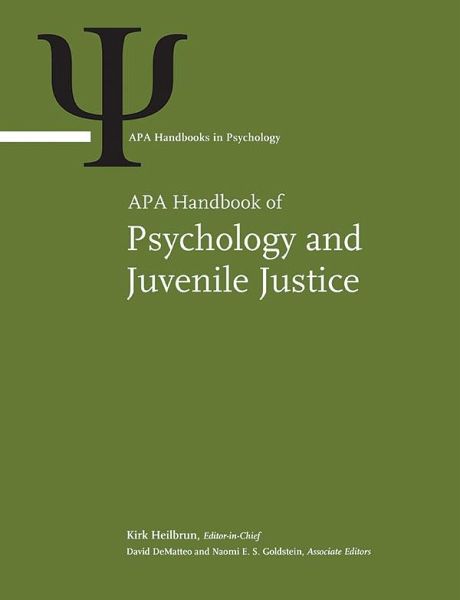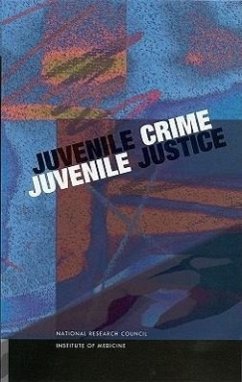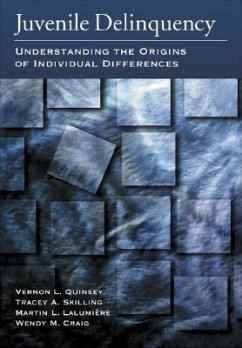
APA Handbook of Psychology and Juvenile Justice
Versandkostenfrei!
Versandfertig in über 4 Wochen
220,99 €
inkl. MwSt.

PAYBACK Punkte
110 °P sammeln!
The APA Handbook of Psychology and Juvenile Justice consolidates and advances knowledge about the legal, scientific, and applied foundations of the juvenile justice system. In addition to an overview of the area, it contains chapters in the following sections: * Relevant Law (focusing on important legislation and on U.S. Supreme Court decisions from Kent and Gault to Eddings, Roper, Graham, and Miller-Jackson, and on the relevant legal theory of preventive justice for adolescents) * Human Development (describing research on adolescent development and brain development as they apply to be...
The APA Handbook of Psychology and Juvenile Justice consolidates and advances knowledge about the legal, scientific, and applied foundations of the juvenile justice system. In addition to an overview of the area, it contains chapters in the following sections: * Relevant Law (focusing on important legislation and on U.S. Supreme Court decisions from Kent and Gault to Eddings, Roper, Graham, and Miller-Jackson, and on the relevant legal theory of preventive justice for adolescents) * Human Development (describing research on adolescent development and brain development as they apply to behavior in the juvenile justice context) * Patterns of Offending (including evidence about offending in juveniles and the persistence vs. desistance into adulthood) * Risk Factors for Offending (evidence about risk factors for juvenile offending including Risk-Need-Responsivity theory, juvenile psychopathy, substance abuse, gangs, and trauma/adverse experience, as well as threat assessment and bullying prevention in schools) * Forensic Assessment (assessing risk, needs/amenability, and sophistication-maturity as part of legal decisions on commitment, transfer, and reverse transfer, as well as legal decisions on Miranda waiver capacity and competence to stand trial) * Interventions (evidence on risk-reducing interventions, both in the community and in residential placement, including for specialized offending of sexual offenders) * Training and Ethics (including the updated MacArthur curriculum on adolescents in the juvenile justice system and an analysis of the ethical issues particular to juvenile justice)












